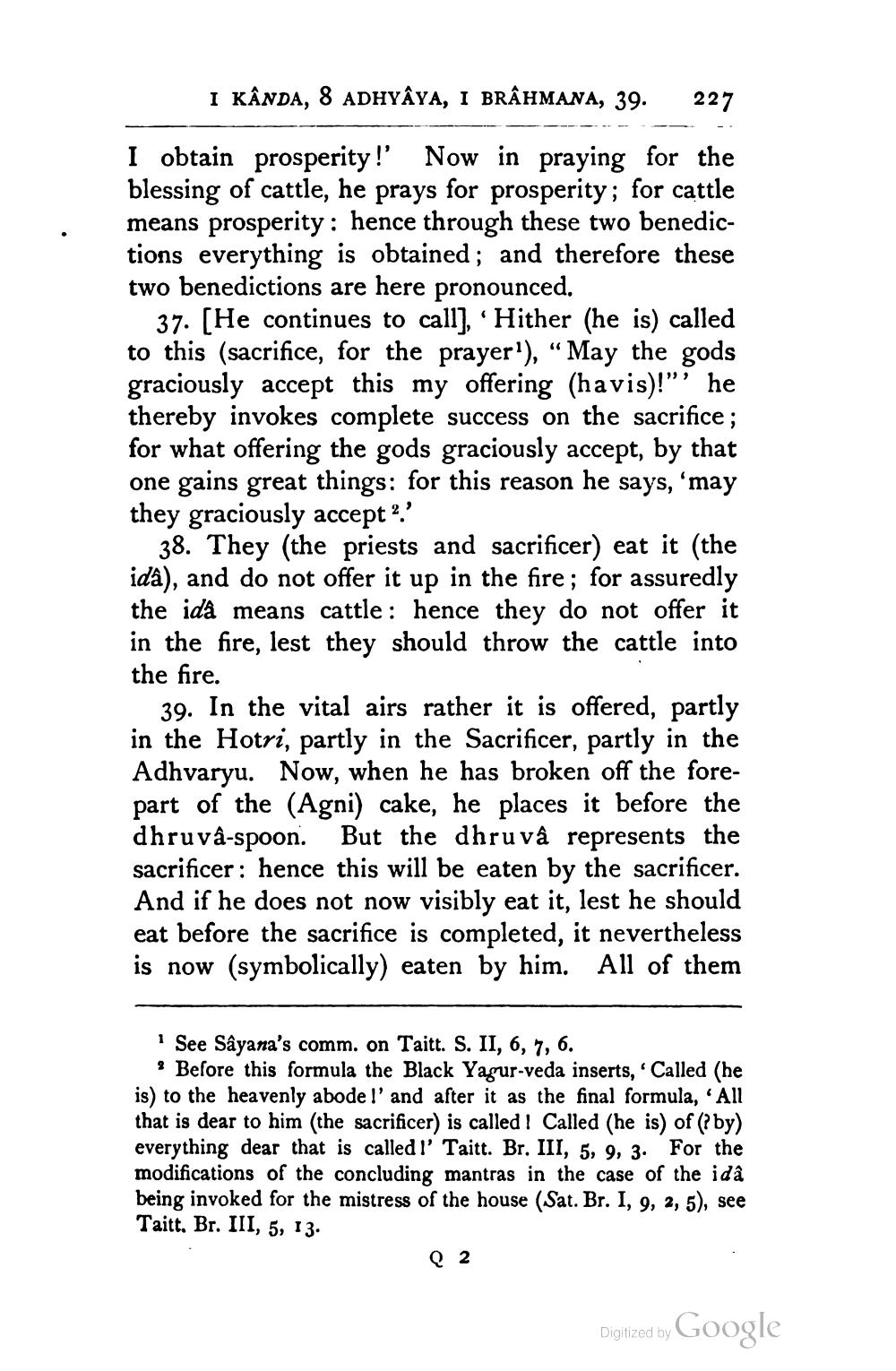________________
I KÂNDA, 8 ADHYAYA, 1 BRÂHMANA, 39.
227
I obtain prosperity!' Now in praying for the blessing of cattle, he prays for prosperity; for cattle means prosperity: hence through these two benedictions everything is obtained ; and therefore these two benedictions are here pronounced.
37. (He continues to call], Hither (he is) called to this (sacrifice, for the prayer'), “May the gods graciously accept this my offering (havis)!” he thereby invokes complete success on the sacrifice; for what offering the gods graciously accept, by that one gains great things: for this reason he says, 'may they graciously accept ??
38. They (the priests and sacrificer) eat it (the ida), and do not offer it up in the fire; for assuredly the idà means cattle: hence they do not offer it in the fire, lest they should throw the cattle into the fire.
39. In the vital airs rather it is offered, partly in the Hotri, partly in the Sacrificer, partly in the Adhvaryu. Now, when he has broken off the forepart of the (Agni) cake, he places it before the dhruvâ-spoon. But the dhruvâ represents the sacrificer: hence this will be eaten by the sacrificer. And if he does not now visibly eat it, lest he should eat before the sacrifice is completed, it nevertheless is now (symbolically) eaten by him. All of them
See Sâyana's comm. on Taitt. S. II, 6, 7, 6.
Before this formula the Black Yagur-veda inserts, Called (he is) to the heavenly abode l' and after it as the final formula, All that is dear to him (the sacrificer) is called I Called (he is) of (? by) everything dear that is called '' Taitt. Br. III, 5, 9, 3. For the modifications of the concluding mantras in the case of the idå being invoked for the mistress of the house (Sat. Br. I, 9, 2, 5), see Taitt, Br. III, 5, 13.
Q2
Digitized by Google




